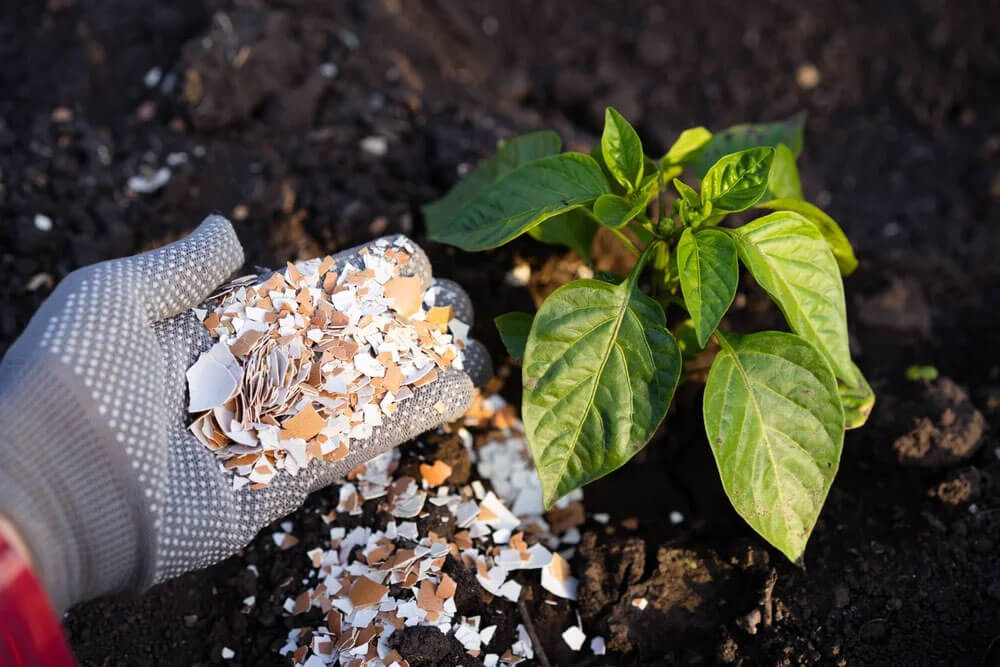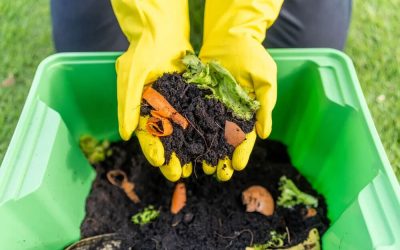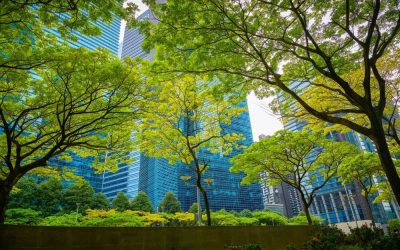Singapore is facing a growing challenge with organic waste, from food scraps to agricultural by-products. Traditional composting methods are too slow to keep up. That’s where the rapid digestion technology of Biomax Green comes in. As a leader in bio waste solutions in Singapore, Biomax transforms waste into fertiliser in just 24 hours, supporting the Green Plan 2030 and advancing the circular economy.
In this article, we’ll explore why fast waste treatment is crucial, how Biomax’s 24-hour system works, its environmental and economic impact, and real-life applications across industries. We’ll also explain how your business can adopt this breakthrough green technology today.
Key Takeaways
- Biomax Green’s rapid digestion technology is a patented green biotechnology process that converts organic waste into organic fertiliser within 24 hours using thermophilic microbes under oxygen-rich and high-temperature conditions.
- Biomax Green’s 24-hour composting system involves these steps: Waste Input, heat activated enzymatic digestion and Fertiliser Output.
- Biomax Green is the best choice for bio waste solutions in Singapore because it reduces landfill dependency and emissions, converts waste into a revenue-generating product, and is aligned with Singapore’s Green Plan 2030 and circular economy goals.
The Urgent Need for Bio Waste Solutions in Singapore
Why Singapore Needs Fast and Scalable Waste Treatment
Singapore produces over 755,000 tonnes of food waste annually, but only about 18% is recycled. The majority is incinerated or sent to Semakau Landfill, which is expected to reach capacity by 2035, according to the National Environment Agency. In a densely populated city-state with limited land, the need for bio waste solutions in Singapore is critical.
Key Challenges Driving the Need for Innovation
- Land scarcity: Traditional waste management methods require space, but Singapore lacks sufficient land.
- Low recycling rates: Most bio waste ends up incinerated, wasting potential value.
- High emissions: Transporting and incinerating organic waste contribute to carbon output.
- Food industry pressure: F&B outlets, food courts, and factories generate large volumes of daily waste, necessitating immediate solutions.
A scalable, decentralised solution is essential, especially one that aligns with the Green Plan 2030 and supports the circular economy. Biomax Green’s 24-hour system addresses this by turning waste into fertiliser rapidly and efficiently, right at the source.
Current Limitations of Traditional Composting and Anaerobic Digestion
While composting and anaerobic digestion have served waste reduction efforts in other regions, they are ill-suited to Singapore’s urban density and climate goals.
Why Traditional Systems Fall Short
- Slow processing times:
- Composting typically takes 4 to 8 weeks.
- Anaerobic digestion can take 10 to 30 days, depending on input and temperature.
- Composting typically takes 4 to 8 weeks.
- Operational drawbacks:
- Requires large land areas for compost piles or digester tanks
- Generates unpleasant odours and poses pathogen risks
- Often releases methane, a potent greenhouse gas.
- Final output may need further curing or treatment
- Requires large land areas for compost piles or digester tanks
The Urgent Case for Rapid, Closed-Loop Solutions
Singapore needs on-site, high-speed systems that:
- Minimise odour, emissions, and land use
- Convert waste into usable fertiliser without additional treatment.
- Support food waste recycling in Singapore without burdening the national infrastructure.
Biomax Green’s rapid digestion technology offers a clean, scalable, and future-ready alternative to these outdated methods.
Introducing Biomax Green’s Rapid Thermophilic Digestion System
What Is Rapid Thermophilic Digestion System?
At the heart of green biotechnology in Singapore, Biomax Green’s rapid thermophilic digestion system represents a transformative shift in how we treat organic waste. Unlike traditional composting or anaerobic systems, this process uses thermophilic microbes, heat-loving microorganisms that thrive at high temperatures, to break down organic material efficiently and safely.
The Science Behind the Speed
- BM1 Enzymes: These are patented enzymes that are made by thermophilic bacteria. These enzymes operate optimally at 80°C, rapidly decomposing complex organic compounds in just 24 hours.
- The Organic Waste Digester: The Biomax Rapid Thermophilic Digester is an automated enclosed system. It is used to treat organic waste at high temperatures that can quickly break down organic compounds and accelerate the aerobic fermentation process.
- 24-hour cycle: What takes weeks in conventional systems is completed in just one day, making it one of the fastest bio-waste treatment systems on the market.
A Clean, Closed-Loop Process
- Oxygen-rich environment: Aerobic conditions reduce methane production and eliminate odours.
- Self-sanitising system: High temperatures neutralise pathogens and weed seeds.
- Pathogen-free fertiliser: The end product is safe, stabilised, and nutrient-rich, ready for immediate agricultural use or packaging.
This technology goes beyond efficiency. It embodies the principles of circular economy and green biotechnology by turning waste into value within a closed and sustainable system.
How It Differs from Conventional Waste Systems
Most waste treatment systems in use today are either too slow, too space-intensive, or too polluting to meet the needs of a fast-paced, urban economy like Singapore’s. Biomax Green’s rapid digestion technology solves all three challenges, delivering a solution that is fast, compact, clean, and highly scalable.
Key Advantages Over Traditional Methods
Here’s how Biomax’s system compares against traditional composting and anaerobic digestion:
| Feature | Traditional Composting | Anaerobic Digestion | Biomax Rapid Digestion |
| Processing Time | 30-90 days | 10-30 days | 24 hours |
| System Size Requirements | Large, open-air space | Large digester tanks | Compact, modular units |
| Emissions | Moderate CO₂, minimal CH₄ | Methane (CH₄) emissions | Low-emission, aerobic process |
| Odour Control | Difficult to manage | Often odorous | Odourless output |
| Output Quality | May need curing or post-mixing | Wet slurry, post-treatment | Dry, pathogen-free fertiliser |
| Post-treatment Required | Yes | Yes | No |
| Operational Complexity | Labour-Intensive | Requires expert management | User-friendly and low-maintenance |
| Suitability for Urban Deployment | Low | Moderate | High; Ideal for food courts and factories |
With its blend of speed, safety, and sustainability, Biomax Green’s rapid digestion technology goes far beyond traditional waste systems. It’s a strategic framework for how green biotechnology in Singapore can lead the shift to circular, decentralised, and scalable waste infrastructure.
How the 24-Hour Waste-to-Fertiliser Process Works
In an age where time, space, and sustainability are all at a premium, Biomax Green’s 24-hour composting system redefines what’s possible in waste management. Designed for speed, consistency, and environmental impact, the system transforms raw organic waste into high-quality, pathogen-free fertiliser, ready for immediate agricultural use. Here’s a breakdown of how it works, hour by hour.
The 24-Hour Waste-to-Fertiliser Process
Biomax’s system operates through a controlled, thermophilic (high-temperature) aerobic digestion process. The key stages include:
- Waste Input: Organic materials such as food scraps, agricultural residues, and livestock waste are loaded into the digester.
- Enzymatic Breakdown: Proprietary BM1 enzymes accelerate the decomposition of complex organic compounds at temperatures ranging from 60°C to 80°C.
- Thermal Treatment: The elevated temperatures ensure the elimination of harmful pathogens and reduce greenhouse gas emissions compared to traditional composting methods.
- Fertiliser Output: After 24 hours, the process yields nutrient-rich, odourless, and pathogen-free organic fertiliser, ready for use in agricultural applications.
By compressing what typically takes weeks into just 24 hours, Biomax’s system proves that speed and sustainability can co-exist. This 24-hour composting system is more than just waste treatment. It’s an enabler of circular economies, and a model for what modern food waste recycling should look like in urbanised, land-scarce regions like Singapore.
Environmental and Economic Benefits of Biomax’s Innovation
Biomax Green isn’t just solving a waste problem. It’s helping reshape how cities like Singapore define sustainable waste management. By compressing the waste-to-fertiliser process into just 24 hours, Biomax delivers both environmental and economic impact at scale. It is an example of how green technology can be commercially viable while advancing national sustainability goals.
Sustainability at the Core
Singapore’s ambition to become a Zero Waste Nation under the Green Plan 2030 demands systems that are not only efficient but circular. Biomax Green’s 24-hour digestion process addresses this with a closed-loop, zero-waste solution that tackles organic waste head-on.
Environmental Advantages at Every Stage
- Reduces landfill pressure: By converting organic waste at the source, Biomax’s system diverts significant tonnage from incinerators and landfills, helping extend the lifespan of Semakau Landfill.
- Eliminates methane emissions: Unlike anaerobic digestion, which releases methane (a potent greenhouse gas), Biomax’s aerobic process produces no methane and minimal CO₂.
- Enables nutrient cycling in agriculture: The system transforms waste into a high-quality organic fertiliser, allowing nutrients to be returned to soil ecosystems, supporting regenerative agriculture and food security.
- Aligns with carbon reduction targets: Less waste transport, zero methane, and localised processing mean lower emissions across the board, aligning with Singapore’s national carbon goals.
Cost-Saving for Businesses and Municipalities
Beyond sustainability, Biomax’s system delivers tangible economic benefits, making it attractive not only to eco-conscious businesses but also to cost-driven decision-makers.
Financial Gains and Operational Efficiency
- Reduced disposal and transport fees: On-site organic waste treatment eliminates the need for frequent waste collection and lowers long-term disposal contracts.
- Revenue from fertiliser sales: The output, an odourless, pathogen-free organic fertiliser, can be reused, sold, or integrated into green product lines, creating new revenue streams.
- Scalable across sectors: Whether it’s a hotel kitchen, hospital food service, manufacturing plant, or agricultural site, the Biomax system scales with your operations, providing a consistent, reliable solution that fits tight urban footprints.
Biomax Green proves that organic waste treatment in Singapore doesn’t need to be a cost centre. It can be a profit generator, a sustainability milestone, and a competitive advantage all at once. It’s a strategic asset for any future-focused business or municipality.
Real-Life Applications Across Industries
Biomax Green’s industrial composting technology is more than just a laboratory breakthrough. It’s a practical, scalable solution already transforming multiple sectors both in Singapore and globally. Its adaptability and efficiency have made it a trusted partner across industries that generate significant organic waste, proving the versatility of rapid digestion technology in real-world settings.
Hospitality Industry – Hotels Processing Daily Food Scraps
In Singapore’s bustling hospitality sector, daily food waste presents a logistical and environmental challenge. Biomax Green’s 24-hour system enables hotels and large-scale kitchens to process food scraps on-site, reducing reliance on external waste disposal and shrinking carbon footprints. This not only cuts costs but also helps businesses meet increasingly strict environmental regulations and consumer demand for sustainability.
Agriculture – Turning Livestock Manure Into Usable Compost
Beyond urban settings, Biomax technology is redefining organic waste treatment in agriculture. Livestock farms can convert manure into high-quality, nutrient-dense fertiliser quickly and safely, reducing harmful runoff and enhancing soil health. This approach supports circular economy principles by returning valuable nutrients to the earth, boosting crop yields sustainably.
Through these diverse applications, Biomax Green demonstrates that industrial composting technology isn’t confined to theory. It’s an essential, adaptable solution driving tangible environmental and economic benefits across sectors and borders.
Why Choose Biomax Green?
Proven Innovation, Trusted Partnerships
In a market crowded with waste management options, Biomax Green stands out as the best food waste solution provider in Singapore. Its blend of cutting-edge technology, proven results, and strong partnerships makes it a trusted leader in the field of award-winning green tech in Singapore.
Strategic Research Partnerships and Global Reach
- Collaborates with leading universities and research institutes to continuously enhance its rapid digestion technology
- Works closely with government agencies to support national sustainability targets
Choosing Biomax Green means partnering with a company that combines award-winning innovation, proven performance, and strong collaborative networks to deliver the most effective, sustainable food waste solutions available today.
Contact Biomax for a Green Waste Solution Today
Ready to transform your organic waste management? Contact Biomax Green for a personalised consultation and take the first step toward a cleaner, more sustainable future.
Frequently Asked Questions
What is rapid digestion system?
Rapid digestion technology is an advanced organic waste treatment process that uses specialised thermophilic microbes to break down bio waste quickly, typically within 24 hours. This technology accelerates decomposition by creating an oxygen-rich, high-temperature environment, producing safe, nutrient-rich fertiliser efficiently and with minimal emissions.
How does Biomax’s 24-hour composting system work?
Biomax’s 24-hour composting system processes organic waste by feeding it into a closed, oxygenated digester where thermophilic microbes rapidly decompose the material. Within a day, the system converts bio waste into odourless, pathogen-free fertiliser without the need for post-treatment, supporting fast and sustainable waste recycling in Singapore.
What are the benefits of bio waste solutions in Singapore?
Bio waste solutions in Singapore help reduce landfill usage and methane emissions, lower waste disposal costs, and support sustainable resource management. These solutions promote nutrient recycling by converting organic waste into fertiliser, aligning with national goals for carbon reduction and circular economy development.
Is Biomax Green’s system suitable for small businesses?
Yes, Biomax Green’s rapid digestion technology is scalable and designed to fit spaces from small food outlets to large industrial sites. This makes it ideal for small businesses seeking efficient, eco-friendly bio waste solutions in Singapore that reduce waste handling costs and environmental impact.
How does this solution support Singapore’s circular economy goals?
Biomax Green’s system transforms organic waste into valuable fertiliser, closing nutrient loops and turning waste into resources. This aligns with Singapore’s circular economy goals by reducing landfill dependency, lowering greenhouse gas emissions, and promoting sustainable, regenerative use of bio waste across industries.



